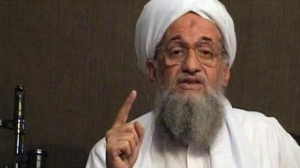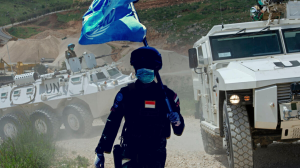Economic hardship after one year of Taliban rule
Afghanistan's economy and people have suffered significant setbacks and hardships since the Taliban returned to power in August 2021. Former president Hamid Karzai, who remained in Taliban-run Afghanistan as a mediator and adviser to the Taliban, stated: “In terms of the economy of the country, it’s a disaster. In terms of Afghans leaving their own country, it’s a huge disaster and a shame upon us. And this is something that the Taliban have to address.” Yet, in the same interview, Karzai refers to factors that are mitigating the economic decline, stating that: “…there’s more stability, there’s more security… [than there was before the Taliban’s return to power].” This can also be attributed to the reduction in attacks on civilians and public spaces once the Taliban became a de facto governing power.
Karzai's comments outline the major challenges and opportunities facing the Taliban-controlled Afghan economy. The collapse of the US-backed government has suddenly cut more than $8 billion a year in international security and economic aid. This equates to 40% of Afghanistan's Gross Domestic Product (GDP). Afghanistan's GDP has contracted by more than 20% over the past year as a result of cuts in international aid. As aid agencies and international donors terminated many of their infrastructure projects and other programs, many Afghans lost their jobs and livelihoods as businesses closed or scaled back and social services crumbled. The banking system is largely shut out of the international financial system, complicating efforts by Afghan citizens to access foreign currency and funds held in their accounts.
Hundreds of thousands of people have fled the country, and Afghan government agencies are robbed of their management and management talents. Moreover, policies that limit women's economic participation and exclude girls from secondary education have dire short- and long-term economic consequences. The Taliban's decision to restrict women's economic participation is estimated to cost the Afghan economy up to $1 billion, or 5% of GDP, according to the United Nations Development Program (UNDP). Moreover, neglecting to invest in girls' education, half of the country's human capital will cause Afghanistan to lose 2.5% of its annual GDP, hampering future economic recovery and growth. Most experts believe that without a fundamental change in Taliban rule, there is no prospect of a return to pre-2021 levels, let alone a return to high economic growth.
With reduced international aid and a sharp decline in economic output, aid agencies are under pressure to help vulnerable Afghans. Poverty and hunger are worsening sharply. According to a World Bank study, up to 70% of the population, today cannot afford food and other essentials, and many Afghans would starve to death without humanitarian assistance. An annual injection of $1 billion to $1.5 billion or so from the United Nations, plus nearly as much benevolent humanitarian assistance, is essential to both the survival of humanity and the marginal maintenance of economic stability. Recognizing the dangerous situation facing many Afghans, the United States, the United Nations, and other donors have eased sanctions barring aid to regimes allegedly supporting terrorism. There are currently no exemptions or amnesties for humanitarian assistance under the UN 1267 sanctions regime. However, the breakthrough in Taliban sanctions achieved last December highlights the importance of ensuring the continued opportunity for impartial humanitarian assistance, even in the presence of designated terrorist groups and individuals. emphasizes sexuality. In the United States, a series of US Treasury Department announcements culminating in February 2022's General License 20 continue to designate the Taliban as a terrorist organization, but existing sanctions on Afghanistan as a sovereign territory. turned out not to apply. Afghan government or government agencies, and public and private banks or corporations. Meanwhile, the United States has frozen approximately $7 billion in Afghan central bank assets and is willing to pay up to half of that amount as it may pay court rulings against families of the September 11, 2001 attacks on the United States. is reserved.
Taliban leaders have cited US sanctions and asset freezes as the main cause of the country's economic difficulties. But the death of al-Qaeda leader Ayman al-Zawahiri in his August U.S. drone strike in Kabul will make the Taliban widely recognized as a terror-sponsored regime. Zawahiri's presence in a pleasant area of Kabul, in a house reportedly owned by an ally of Sirajuddin Haqqani himself, a designated person confirms the assessment of many experts that the connection still exists. strong. The Taliban's apparent refusal to break with Al-Qaeda is likely to deter the few foreign investors who might have considered it a risky move. Non-compliance will increase future political opposition to targeted sanctions reductions such as General License 20.
Despite the Taliban's inexperience and unproductive policies, isolated examples of sanctions easing appear to be able to stabilize economic decline -- not necessarily reverse it. After the rebellion ended, attacks within the country abated, opening up economic opportunities to previously isolated regions. Improvements in security in parts of the country brought about by the Taliban victory and the end of heavy fighting have led to many businesses benefiting the individual. Roadside bombs and ambushes were no longer a constant terror, domestic mobility was greatly improved. Many of the checkpoints that previously reduced traffic and allowed local commanders to extort bribes for passage have been rendered obsolete by the improved security environment. In addition, the Taliban have greatly reduced corruption in tariff collection. As a result, the overall burden on the private sector was reduced, and formal tax revenues declined in proportion to the decline of the economy as a whole. Meanwhile, the Taliban's announcement of a strict ban on drug production and trafficking, which marked its rule from 1996 to 2001, threatens to deprive hundreds of thousands of rural farmers of their livelihoods. However, it remains to be seen whether the ban will be fully enforced. The Taliban regime looks a little more pragmatic than its previous incarnations, but it is clear that Taliban leaders are ready to enact the reforms needed to secure the international investment and aid needed to reverse the economic decline. It is not clear whether it is done or not. Measures such as a decisive break with al-Qaeda and adherence to international human rights standards, especially women's rights, are not yet priorities for the regime's ruling factions. Meanwhile, human suffering continues almost unabated.
Already have an account? Sign In
-
Start reading
Freemium
-
Monthly Subscription
30% OFF$26.03
$37.19/MonthCancel anytime
This offer is open to all new subscribers!
Subscribe now -
Yearly Subscription
33% OFF$228.13
$340.5/YearCancel anytime
This offer is open to all new subscribers!
Subscribe now






